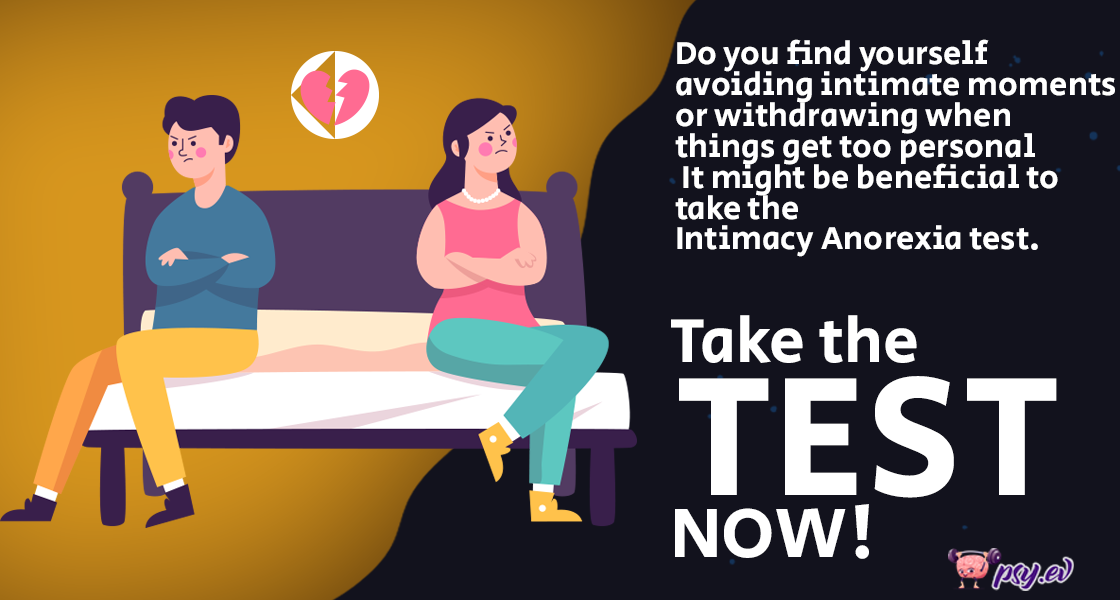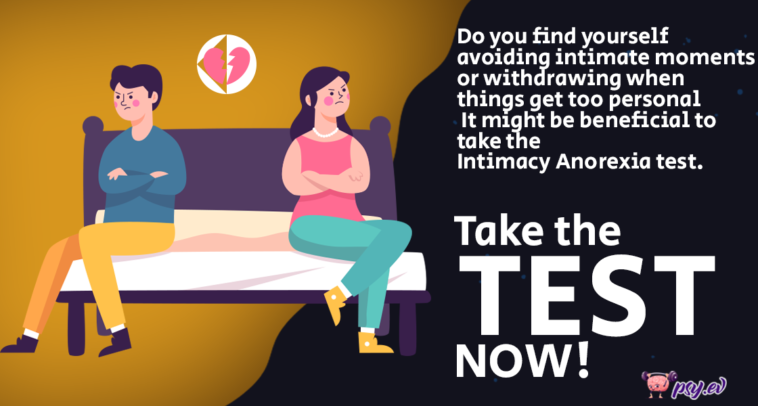When should you take the test? If you feel like your relationship has started to feel hollow and unfulfilling when you love your spouse, that is a sign for you to take this verified intimacy anorexia test.
Intimacy anorexia can greatly affect people who have been together for a long time, especially married couples. Moreover, intimacy anorexia can cause emotional abuse and harm both partners' health and relationships.
Understanding Intimacy Anorexia
Intimacy anorexia is actively withholding emotional and sexual intimacy from the spouse or partner. Several medical professionals say intimacy anorexia may be the main reason for sexless marriages.
The symptoms of intimacy anorexia depend on the person and their behavior. Initial signs of intimacy anorexia may include emotional withdrawal in which the person refrains from expressing their emotions, communicating their ideas or opinions, or showing their spouse emotional receptivity.
Another sign includes physical withdrawal, for instance, the person may avoid touching, cuddling, or having sexual relations with their partner, and an increase in the use of pornography.
Many people and partners experience a change in the dynamic that makes the relationship seem more like a friend than a romantic one. The partner may also be reluctant to provide information to their spouse and may be secretive about their actions, ideas, or feelings.
Additionally, the person may attempt to control the relationship by manipulating their spouse, withholding love, or issuing ultimatums. Lastly, the person may also have physical or emotional relationships with others outside their relationship.
There are four probable causes of intimacy anorexia:
- The first cause is sexual abuse. Sexual trauma can potentially destroy a victim's entire existence and go very deep.
- The second cause is detachment problems influenced by your relationship with your parents. It can influence how you interact with others for the rest of your life. When a person afflicted feels the urge to shield themself from being vulnerable, problems like intimacy anorexia may develop.
- Thirdly, sexual dependence also plays a role in developing intimacy anorexia. Sexually addicted people frequently satisfy their cravings outside of romantic relationships.
- Role model neglect is the last cause of intimacy anorexia. When a young person's role model abandons them, they must figure life out independently.
Next Step
The concept of intimacy anorexia may seem like the solution you have been searching for if you're seeking to understand why your relationship lacks intimacy. After being aware of intimacy anorexia, seek help to develop intimacy and learn how to maintain committed relationships.
According to the American Association of Sex Addiction Therapy (AASAT), group therapy, individual therapy, marital therapy, partner therapy, and support groups are all treatment options for intimacy anorexia. It is crucial that the therapist is knowledgeable about the specific issue and has experience treating intimacy anorexia.
A qualified counselor deals with the emotional harm in most marriages and relationships due to intimacy anorexia. The intimacy anorexia counseling sessions are quick fixes that assist you in resolving intimacy issues in your marriage or relationships.
Additionally, they can aid in problem-solving, issue resolution, and determining the best course of action. For some people, intimacy is difficult to achieve. Therapy can help with intimacy and confidence between partners.
The willingness of both couples to engage in treatment and collaborate on relationship improvement is crucial. Additionally, underlying conditions like anxiety or depression caused by intimacy anorexia can also be treated with therapy.


